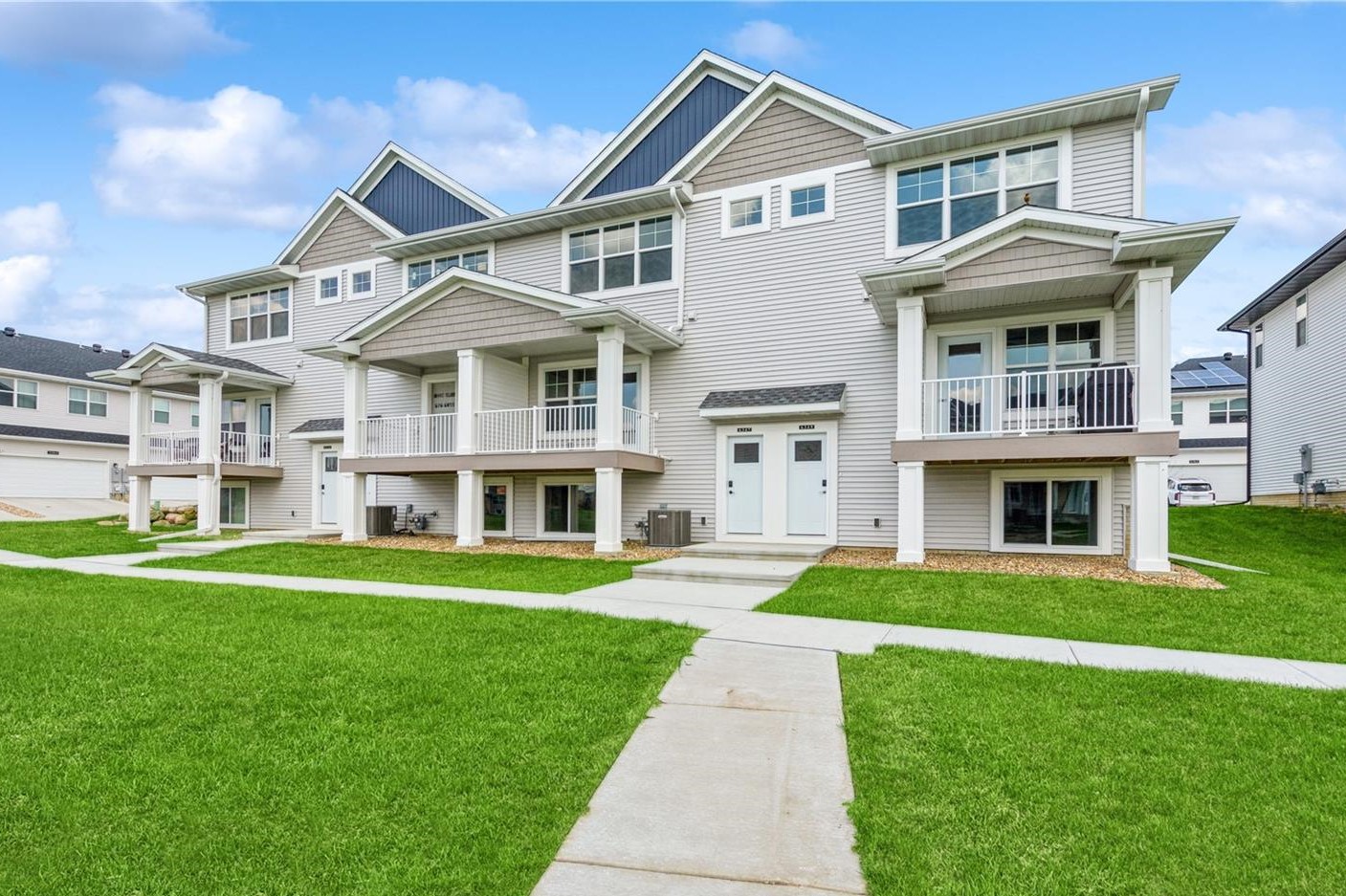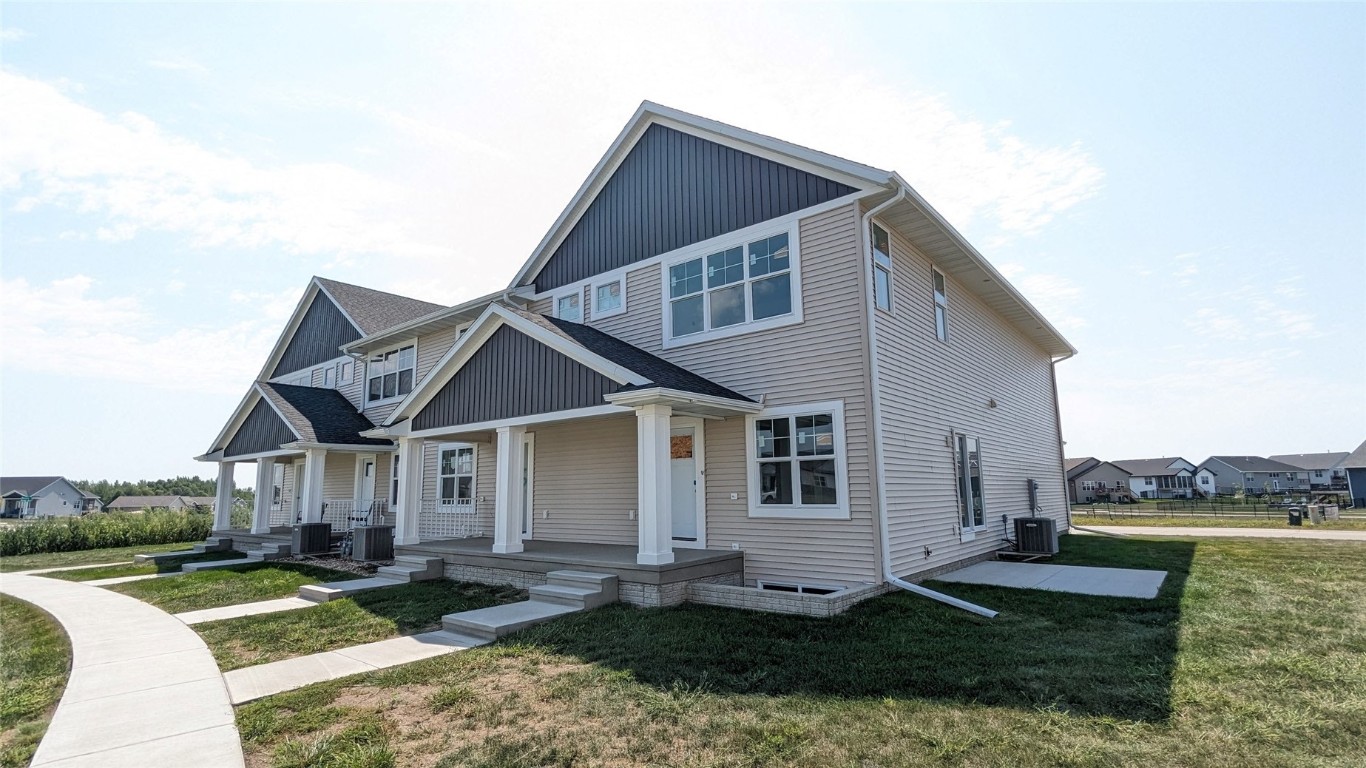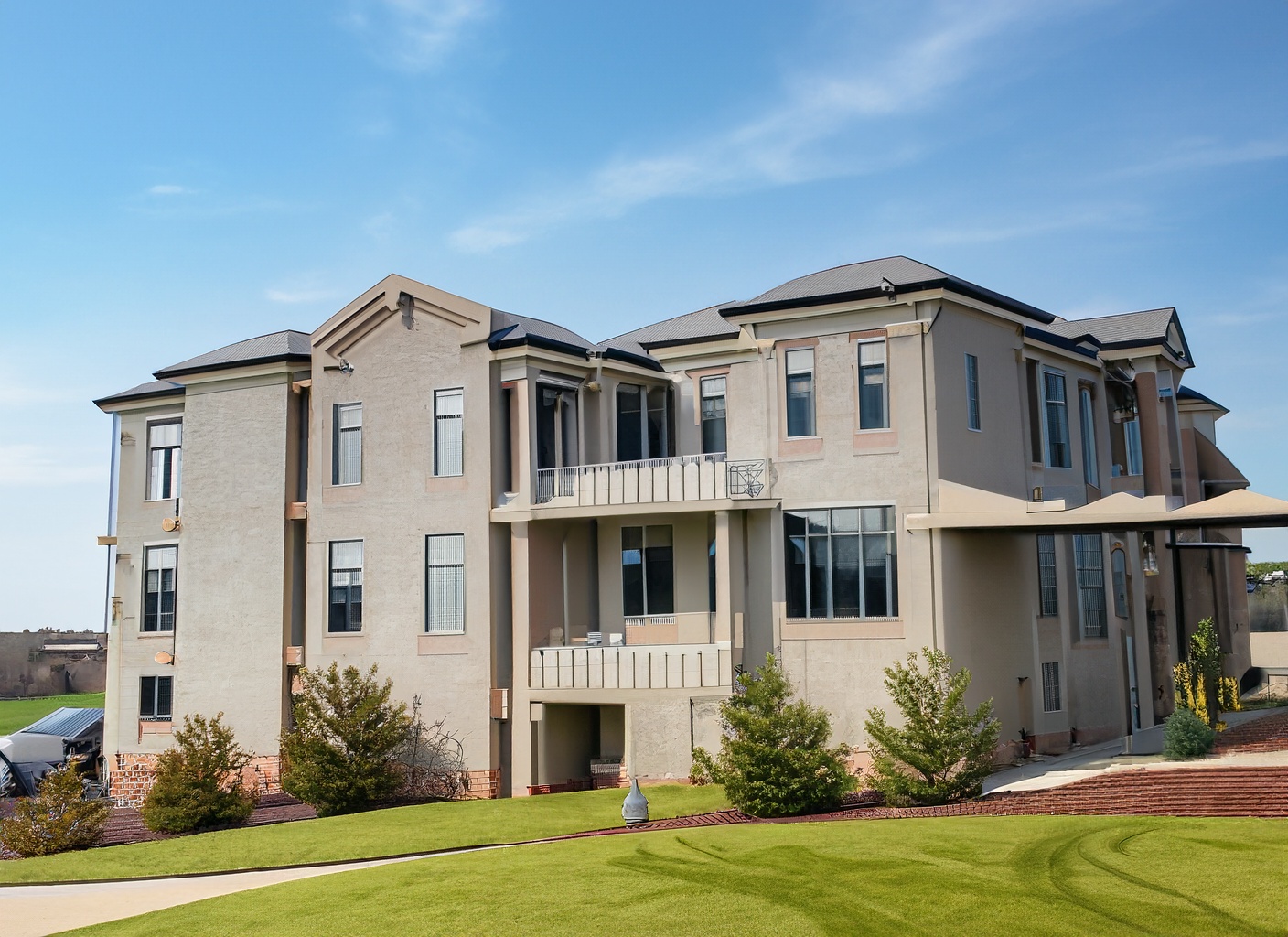by Twenty40 Companies
Share
by Twenty40 Companies
Share

Zero Lot vs Condo Living – What’s the difference?
When it comes to housing options, the choices seem almost as diverse as the people seeking them. Two popular options in Iowa for those looking for low-maintenance living are zero lots and condos. These housing styles offer a different approach to homeownership, each with its own set of pros and cons. In this article, we’ll explore the differences between zero lots and condos to help you make an informed decision about which one might be the best fit for you.
Zero Lot Living
With a zero lot line, one or more portions of the structure sits on or near the edge of a property line-meaning “zero” lot or land is to be had. The front or back of the property may sit close to the street. Often, a zero lot line implies there is a shared central wall between units. Duplexes, townhouses, and condos all have the potential to fall into this category which is why they are often confused. We’ve detailed some key components of zero lot homes below.
Individual Ownership:
One of the key distinctions of a zero lot is individual ownership. When you purchase a zero-lot property, you own both the house and the land it’s built on. However, the key feature of a zero lot is that the house is built very close to one side of the property line, maximizing the use of space.
Outdoor Space:
Zero lots typically have a small yard or outdoor area, but it’s often limited in size due to the layout. The idea here is to minimize the maintenance required for landscaping and outdoor upkeep.
Privacy:
Zero lots usually provide more privacy compared to condos, as you have your own space with fewer shared walls and common areas.
Maintenance:
While you are responsible for the maintenance of your individual property, you won’t have to worry about common area maintenance like you would in a condo complex.

Before purchasing a zero lot line property, carefully assess your needs, lifestyle, and preferences. Consider factors like privacy, maintenance responsibilities, and community amenities to determine if this housing option aligns with your goals and lifestyle.
Condo Living
With condos, it’s important to know that certain parts are individually owned and operated by each individual homeowner while others are jointly owned or shared such as a lobby, fitness room, or other spaces. This means there will always be a homeowners association. Since this association will likely handle more than that of a zero lot or townhouse, you’ll want to be really sure you feel good about their management. How well do they maintain common areas? What rules are in place? How are decisions made? What level of participation is required by you and the other homeowners? You are committing to the homeowners association just as much as you are the condo itself. Here are some factors to consider when purchasing a condo:
Ownership Structure:
When you buy a condo, you’re purchasing a unit within a larger building or complex. You own your individual unit but share ownership of common areas and amenities with other condo residents.
Outdoor Space:
Condos typically come with limited or shared outdoor spaces like courtyards, pools, or rooftop gardens. You’ll have less individual outdoor space than in a zero lot.
Amenities:
Condos often offer a range of amenities, such as fitness centers, community rooms, and security features. These shared amenities can enhance your living experience but come with monthly condo association fees.
Maintenance:
Condo living usually involves less maintenance responsibility for individual units. The condo association takes care of maintenance for common areas, exterior upkeep, and sometimes even utilities.
Community:
Living in a condo complex often fosters a strong sense of community, as you’ll be in close proximity to your neighbors and may participate in association meetings and events.

Financial considerations:
When deciding between a zero lot and a condo, it’s also crucial to consider the financial aspects.
Cost:
Zero lots might have a higher initial purchase price due to individual ownership of land. Condos might be more affordable upfront, but monthly association fees can add up.
Resale Value:
Resale values for both zero lots and condos can vary widely based on location, demand, and market conditions.
Taxes and Insurance:
Your property tax and homeowner’s insurance obligations may differ between the two housing types.
In the end, the choice between a zero lot and a condo boils down to your lifestyle, preferences, and financial considerations. Zero lots offer more privacy and individual outdoor space, while condos often provide a sense of community and shared amenities. Assess your priorities, consult with a real estate expert like the ones here at Twenty40, and weigh the pros and cons carefully to make the right decision for your next home. Remember, the ideal choice is the one that aligns with your unique needs and lifestyle.
STAY IN THE LOOP
Subscribe to our free newsletter.
20 DIY Landscaping Projects to Do in Iowa This Spring to Improve Curb Appeal
Iowa Housing Market Conditions





